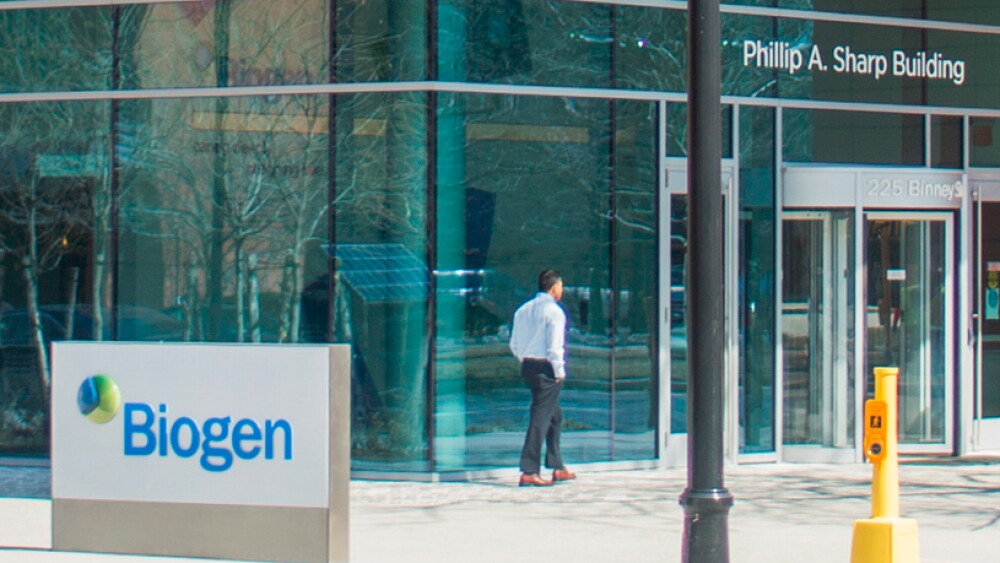December 14, 2016
By Mark Terry, BioSpace.com Breaking News Staff
Cambridge, Mass. – Biogen announced yesterday that it plans to lay off more than 200 people in its local manufacturing facilities.
In June, Biogen announced that it was closing a 67,000-square-foot manufacturing plant in Cambridge, as well as a 46,000-square-foot warehouse in Somerville, Mass. The cuts are related to both of those closures. The plant closings are related to a plan to stop manufacturing drugs locally. About half of its production is being moved to Brammer Bio, a gene therapy manufacturer.
At the Cambridge facility, 93 of the Cambridge employees will lose their jobs and 11 at the Somerville location. About 100 more jobs will move to Brammer.
Biogen indicates that the employees were notified in November and is actively working to assist displaced workers in finding new jobs. It also hosted a job fair last week with approximately 24 biotech companies in attendance.
Biogen had manufacturing plants in North Carolina and Denmark. The company is the third-largest life science employer in Massachusetts. As of October 1, it had 2,900 employees.
This year has been a complicated one for the Cambridge biotech company. A leader in multiple sclerosis (MS), its top-selling Tecfidera has faced multiple challenges to its patents and those aren’t expected to be resolved until the end of the first quarter of 2017. In June, it’s opicinumab (anti-LINGO-1) to treat nerve damage caused by MS, failed to meet its primary endpoints in a Phase II clinical trial.
Despite that, it’s three other MS drugs, Avonex, Tysabri and Tecfidera, each create about $1 billion in annual revenue.
Most recently, however, on December 9, the company released positive early data from its Phase Ib trial of its Alzheimer’s drug, aducanumab. That news caused an initial stock LINKhttps://www.google.com/search?client=safari&rls=en&q=Biogen+stock&ie=UTF-8&oe=UTF-8 pop, which settled down afterwards. It’s currently trading for $287.38. Despite what should have been euphoria, investors and analysts had concerns over a patient seizure during the clinical trial. This sometimes seems as if investors are looking for reasons to downplay a Biogen success, although it’s also true that most Alzheimer’s drugs die in Phase III trials, which Biogen is also conducting simultaneously on the drug. And John Scotti, an analyst with Evercore, did admit that Alzheimer’s patients are anywhere from six to 10 times more susceptible to seizures than otherwise healthy elderly patients.
In addition, in July, the company’s chief executive officer, George Scangos, announced he was leaving the company. To date, a replacement has not been found.
Although the company has often been cited as a potential acquisition target, with Gilead Sciences , Merck & Co. , Novartis AG and Pfizer floated as possible buyers, investors are also pushing the company to make a strategic acquisition to bolster the inevitable decline of its MS franchise.
Many investors are also noting the company’s experimental drug, Spinraza (nusinersen) for spinal muscular atrophy (SMA). Biogen licensed the drug from Ionis Pharmaceuticals ) in 2013, and has the potential for the broadest possible label expansion for SMA Types 1, 2 and 3 by the U.S. Food and Drug Administration (FDA). Because it is an orphan drug for a rare, but fatal disease, if approved it would likely come with a premium price. Analysts project, if approved, the drug could reach $2 billion in peak sales in a very short period. A regulatory decision is expected sometime in the first quarter of 2017.





